« Return to all search results
Title Search Results
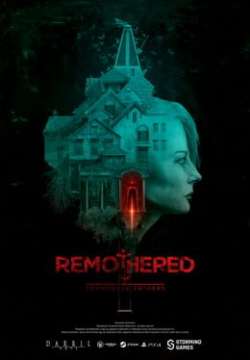
Remothered: Tormented Fathers is the first chapter of the long-awaited third person game trilogy. Playing as Rosemary, you will have to face psychopaths and fanatics. A web of lies where murders and obsessions come to life. A revolutionary experience created for survival-horror fans.
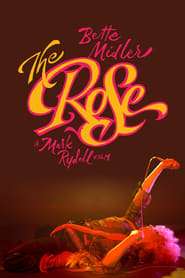
Rock-and-roll singer Mary Rose Foster's romantic relationships and mental health are continuously imperilled by the demands of life on the road.
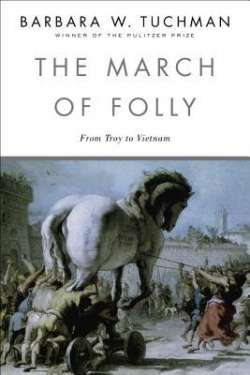
Pulitzer Prize–winning historian Barbara W. Tuchman, author of the World War I masterpiece The Guns of August, grapples with her boldest subject: the pervasive presence, through the ages, of failure, mismanagement, and delusion in government. Drawing on a comprehensive array of examples, from Montezuma’s senseless surrender of his empire in 1520 to Japan’s attack on Pearl Harbor, Barbara W. Tuchman defines folly as the pursuit by government of policies contrary to their own interests, despite the availability of feasible alternatives. In brilliant detail, Tuchman illuminates four decisive turning points in history that illustrate the very heights of folly: the Trojan War, the breakup of the Holy See provoked by the Renaissance popes, the loss of the American colonies by Britain’s George III, and the United States’ own persistent mistakes in Vietnam. Throughout The March of Folly, Tuchman’s incomparable talent for animating the people, places, and events of history is on spectacular display. Praise for The March of Folly “A glittering narrative . . . a moral [book] on the crimes and follies of governments and the misfortunes the governed suffer in consequence.”—The New York Times Book Review “An admirable survey . . . I haven’t read a more relevant book in years.”—John Kenneth Galbraith, The Boston Sunday Globe “A superb chronicle . . . a masterly examination.”—Chicago Sun-Times From the Trade Paperback edition.

New York Times bestselling author Patti Callahan Henry portrays a woman burdened by the past—and the choices she must face to break free of it—in this emotional, engaging novel. Nine months after her father's death, Catherine Leary still hasn't fulfilled his last wish: that she scatter his ashes in the Seaboro River in South Carolina. The scene of a childhood tragedy that forced her family to move, Seaboro is the last place Catherine wants to see again. But on the evening of her thirtieth birthday, her father’s young colleague—whom she once dated—pays a visit...Hoping to stop Forrest Anderson from exposing her family's secrets, she travels to her once-beloved Lowcountry town and embarks on a poignant trip into the past...a journey that might lead her into a new life of love, forgiveness, and self-discovery.
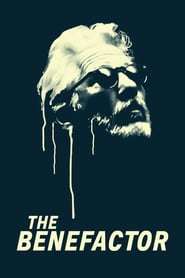
A newly married couple are forced to navigate the all-consuming interest of a powerful, mysterious, and possessive philanthropist.
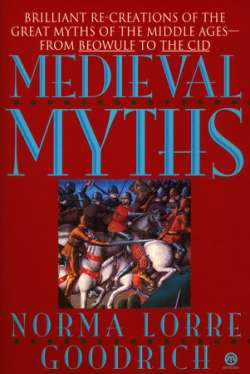
A brilliant re-creation of the great myths of the Middle Ages—from Beowulf to the Cid! Medieval myths are as significant to modern reads as they were to the unlettered serfs and lords of feudal times. Their influence on literature, philosophy, and folklore is apparent throughout the history of Europe, and they have deeply expressed the imagination and dreams of many peoples. Offering nine brilliant retellings of the great myths of the medieval world, this is the first collection to compare national heroes of a time when their cultures were emerging from barbarism into civilization. The stories of Beowulf, Roland, Tannhauser, Culchulain, and other mythic heroes are among the oldest of the western world, and their reverberations have deeply affected the ideals of the nations from which they came. These rousing sagas, so vividly presented here, are masterpieces of world literature that give modern readers new insights into the origins of European culture.
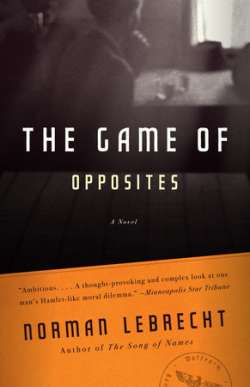
In an unnamed country at the end of a world war, Paul Miller escapes from a labor camp, collapsing after a few hundred feet. Taken in by a young woman he learns to love, Paul decides to stay where he is, and, as the war ends, he marries, starts a family, and helps to rebuild the village. But Paul is inescapably haunted by his life before the war, by his time in the camp, and by the fact that the people who are now his friends ignored for years the horrors in their midst. So when the camp’s commander suddenly returns to the village, Paul finds himself forced to choose between vengeance and forgiveness. The Game of Opposites is a universal tale of good and evil, and a stunning evocation of the capability for both within us all.From the Trade Paperback edition.
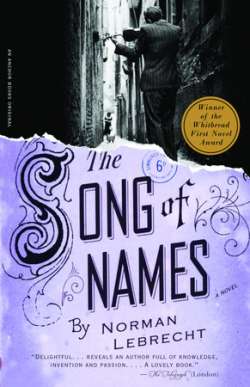
Martin Simmonds’ father tells him, “Never trust a musician when he speaks about love.” The advice comes too late. Martin already loves Dovidl Rapoport, an eerily gifted Polish violin prodigy whose parents left him in the Simmonds’s care before they perished in the Holocaust. For a time the two boys are closer than brothers. But on the day he is to make his official debut, Dovidl disappears. Only 40 years later does Martin get his first clue about what happened to him. In this ravishing novel of music and suspense, Norman Lebrecht unravels the strands of love, envy and exploitation that knot geniuses to their admirers. In doing so he also evokes the fragile bubble of Jewish life in prewar London; the fearful carnival of the Blitz, and the gray new world that emerged from its ashes. Bristling with ideas, lambent with feeling, The Song of Names is a masterful work of the imagination.From the Trade Paperback edition.

The final work of fiction from Norman Mailer, a defining voice of the postwar era, is also one of his most ambitious, taking as its subject the evil of Adolf Hitler. The narrator, a mysterious SS man in possession of extraordinary secrets, follows Adolf from birth through adolescence and offers revealing portraits of Hitler’s parents and siblings. A crucial reflection on the shadows that eclipsed the twentieth century, Mailer’s novel delivers myriad twists and surprises along with characteristically astonishing insights into the struggle between good and evil that exists in us all. Praise for The Castle in the Forest “This remarkable novel about the young Adolf Hitler, his family and their shifting circumstances, is Mailer’s most perfect apprehension of the absolutely alien. . . . Mailer doesn’t inhabit these historical figures so much as possess them.”—The New York Times Book Review “Terrifically creepy . . . an icy and convincing portrait of the dictator as a young sociopath.”—Entertainment Weekly “The work of a bold and confident writer who may yet be seen as the preeminent novelist of our time . . . a source of tremendous narrative pleasure . . . Every character . . . lives and breathes.”—South Florida Sun-Sentinel “Blackly hilarious, beautifully written . . . [The Castle in the Forest] has vigor, excitement, humor and vastness of spirit.”—The New York Observer Praise for Norman Mailer “[Norman Mailer] loomed over American letters longer and larger than any other writer of his generation.”—The New York Times “A writer of the greatest and most reckless talent.”—The New Yorker “Mailer is indispensable, an American treasure.”—The Washington Post “A devastatingly alive and original creative mind.”—Life “Mailer is fierce, courageous, and reckless and nearly everything he writes has sections of headlong brilliance.”—The New York Review of Books “The largest mind and imagination [in modern] American literature . . . Unlike just about every American writer since Henry James, Mailer has managed to grow and become richer in wisdom with each new book.”—Chicago Tribune “Mailer is a master of his craft. His language carries you through the story like a leaf on a stream.”—The Cincinnati PostFrom the Hardcover edition.
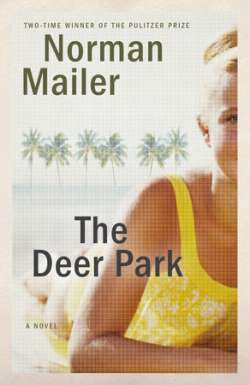
Amid the cactus wilds some two hundred miles from Hollywood lies a privileged oasis called Desert D’Or. It is a place for starlets, directors, studio execs, and the well-groomed lowlifes who cater to them. And, as imagined by Norman Mailer in this blistering classic, Desert D’Or is a moral proving ground, where men and women discover what they really want—and how far they are willing to go to get it. As Mailer traces their couplings and uncouplings, their uneasy flirtation with success and self-extinction, he creates a legendary portrait of America’s machinery of desire. Praise for The Deer Park “A scathing portrayal of Hollywood . . . studded with brilliant and illuminating passages.”—The New York Times Book Review “A writer of the greatest and most reckless talent . . . [Mailer] drives us up and down The Deer Park at breakneck speed. It is a trip through unfamiliar country, for a time funny and then unnerving.”—The New Yorker “Savage . . . brilliant . . . exhilarating.”—The Atlantic Monthly “Entertaining and wise . . . In addition to his furious energy and true ear, Mailer is simpatico with humanity . . . on a level rare in American fiction.”—The New Republic Praise for Norman Mailer “[Norman Mailer] loomed over American letters longer and larger than any other writer of his generation.”—The New York Times “A writer of the greatest and most reckless talent.”—The New Yorker “Mailer is indispensable, an American treasure.”—The Washington Post “A devastatingly alive and original creative mind.”—Life “Mailer is fierce, courageous, and reckless and nearly everything he writes has sections of headlong brilliance.”—The New York Review of Books “The largest mind and imagination [in modern] American literature . . . Unlike just about every American writer since Henry James, Mailer has managed to grow and become richer in wisdom with each new book.”—Chicago Tribune “Mailer is a master of his craft. His language carries you through the story like a leaf on a stream.”—The Cincinnati Post
